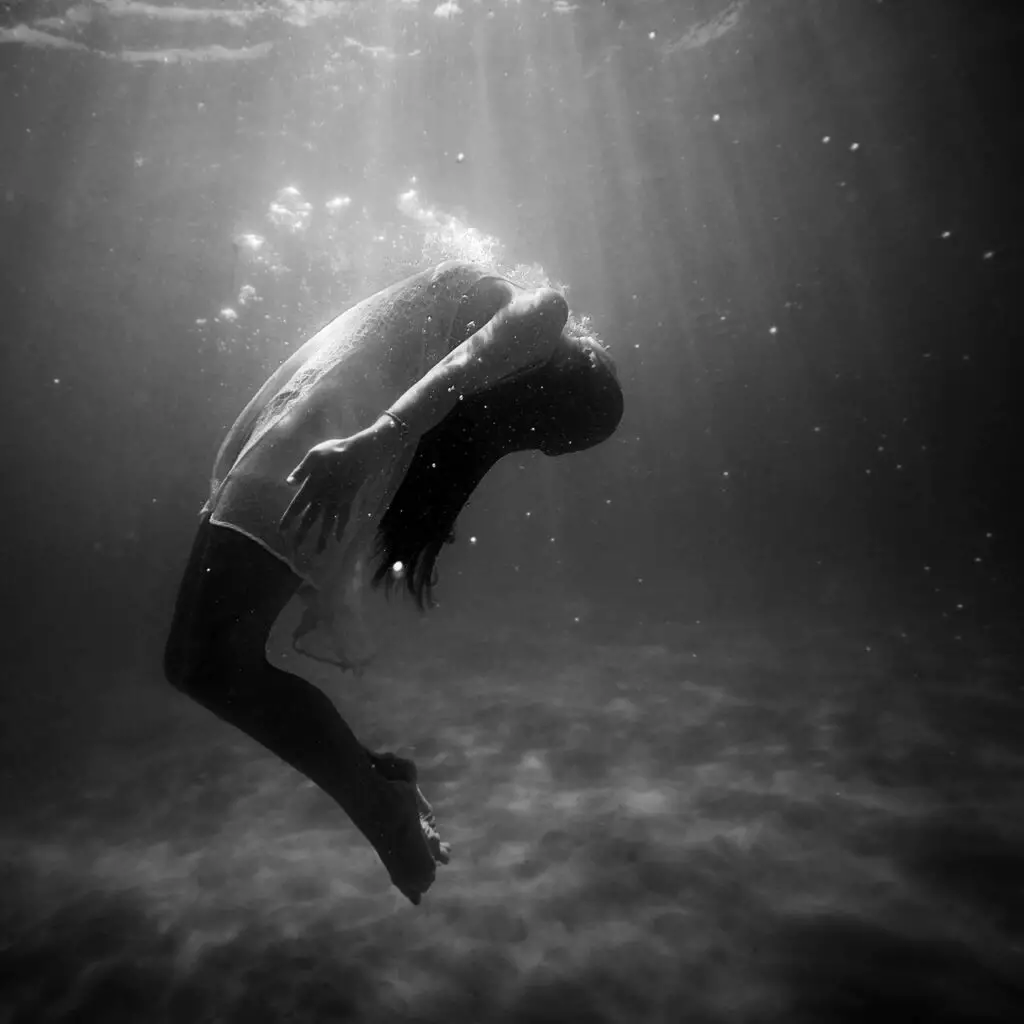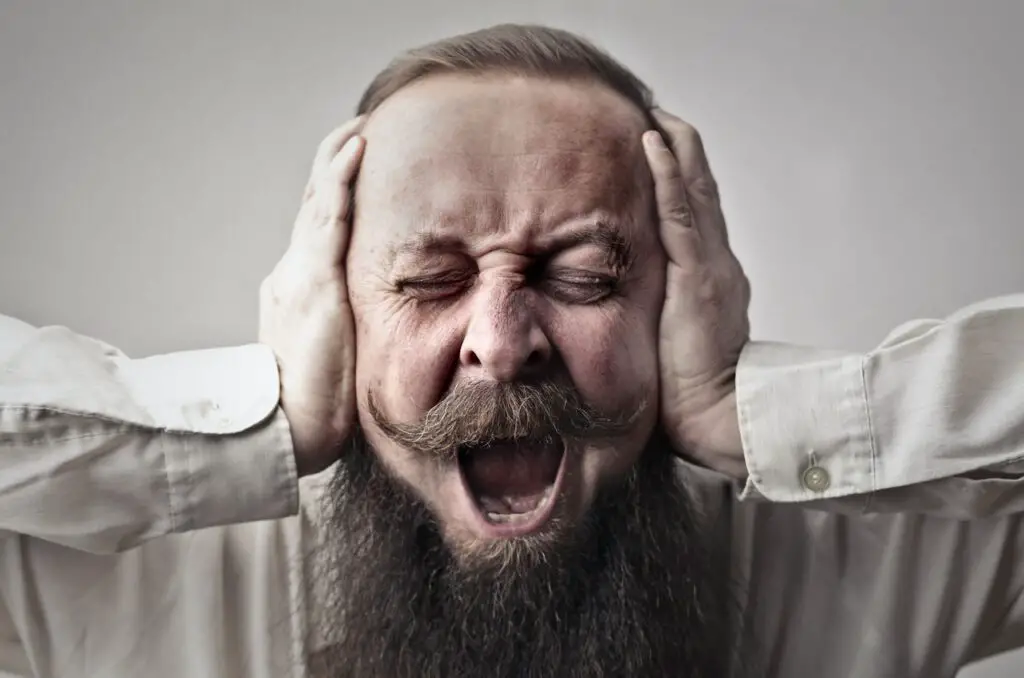Why Do Some INFJs Hate Themselves? (6 Potential Causes You Should Look Into)
Jul 15, 2021

Why do some INFJs hate themselves? I recognize that the word “hate” is pretty strong here.
However, I do think it’s important to use it, because that is what some INFJs can really feel towards themselves from time to time or on a consistent basis in more severe cases.
The INFJ is one in 16 Myers-Briggs personality types, making up roughly 1-2 percent of the population. “INFJ” is an acronym which stands for Introversion (I), Intuition (N), Feeling (F) and Judging (J).
These four core characteristics describe the cognitive functions INFJs use the most to navigate through life.
In this article we will dive into some of the potential darker sides of the INFJ experience, namely the potential origins of low self-esteem, self-loathing, and shame many INFJs seem to struggle with.
As a highly sensitive INFJ male I can definetly speak from experience in this department.
Make sure to stick around till the end, where I reveal a debilitating emotional condition that might be underlying the hate towards the self.
Yet, it is often overlooked. Let’s take a look at why some INFJs seem to hate themselves.
6 Causes Why Some INFJs Hate Themselves
1. INFJs might hate themselves, because they weren’t accepted in Childhood
It is obvious that children in general are sensitive and need special care.
INFJ children, who often are also highly sensitive therefore might even need a slightly more delicate approach when it comes to parenting them.
Sadly, because INFJs are rare (1-2% of the population), the general public isn’t aware of the existence of these kinds of children or any other closely related group of sensitive children (Highly Sensitive children, or Orchid children).
Parents did the best they can in preparing for their newly born children.
Realistically however, most won’t do a deep dive in psychology or pedagogy, just because they aren’t aware of the actual importance of knowing about the intricacies of children’s temperaments and parent-child attachment relationships.
This might result in these groups of sensitive children (INFJ, Highly Sensitive children and Orchid children) to not be recognized for who they are.
Their sensitivity might be experienced by the parents as a hassle, unnatural or as an obstacle to overcome.
Those parents might not fully accept or understand their sensitive children and neglect, shame or discount them as a consequence.
Attempts to change their children’s deemed “weak” sensitive nature might become a structural practice.
As a result many INFJs (and other sensitive children) didn’t get most of their needs for acceptance, nurturance and emotional safety met in childhood.
Consequently, INFJ children risk developing low-self esteem, anxiety, self-consciousness and feelings of guilt and shame around their self-concept.
They risk carrying these burdensome negative sentiments about themselves into adulthood.
Strangely enough, as adults they are often unaware that these underlying core emotional wounds around their self-concept is what’s causing them so much pain i.e. depression and self-loathing.
2. INFJs might hate themselves, because they unknowingly struggle with unresolved Trauma
The impact of insufficient parenting (despite all the good intentions) can have a deep impact on sensitive children.
So much so that it can traumatize the INFJ child.
It is not so much what happens to children that determine if they’ll be traumatized, but what happens inside of them when certain things happen, trauma researcher Bessel van der Kolk describes in his book: The Body Keeps the Score (2014).
In other words, how does the sensitive child experience certain events and what are its effects?
With this in mind, it is not hard to imagine that for sensitive (INFJ) children the threshold for traumatic events can be expected to be lower in general.
But, how would you know you are traumatized by something?
Post Traumatic Stress Disorder (PTSD) is a well-known disorder characterized by having vivid visual, auditory and/or other sensory flashbacks of the traumatic event in question (van der Kolk, 2014).
During those flashbacks, it is as if the sufferer is back in the moment in time when that traumatic event happened.
He or she is reliving it through the senses as if it is here and now with the same emotional charge as the initial emotional reaction (van der Kolk, 2014).

Photo by Life of Pix on Pexels
Complex Post Traumatic Stress Disorder (C-PTSD)
A key factor with classic PTSD however is that the traumatic event was very concrete.
For example, a specific car accident or a robbery that left the victim powerless and unable to cope.
Many times children are also traumatized during childhood by not so salient events.
For instance, instead of physical abuse that can be remembered as beatings, there was perhaps a subtle neglect of the child.
This might leave a particularly sensitive child feeling worthless over time.
As an adult they might get an emotional flashback and feel absolutely worthless like when they were a child, every time they feel neglected.
In the latter case the trauma can be classified as Complex Post Traumatic Stress Disorder (C-PTSD) (van der Kolk, 2014).
Trauma research expert Bessel van der Kolk coined C-PTSD a few decades ago and suggested it be added to the Diagnostic and Statistical Manual for Mental Disorders (DSM).
Unfortunately, his suggestion was shot down by the DSM committee despite solid scientific foundations for his claims around the existence of C-PTSD.
A telltale sign that you might have some kind of unresolved trauma (whether its PTSD or C-PTSD) is that you have a low simmering feeling of heartbrokenness in your body on a frequent basis.
That heartbrokenness might come with intense shame, depression, anxiety, self-loathing and suicidal thoughts.
Many times victims of trauma blame themselves for what happened to them.
Which might make them hate themselves.
If you recognize this in yourself, please seek help from a professional therapist as soon as possible (check out Online therapy.com for great online health professionals and get a 20% discount the first month by using my link!).
3. INFJs might hate themselves, because they have an overly Critical Mind
Now a critical mind isn’t always a bad thing.
For instance, a critical mind is very helpful when we try to determine what would make certain sentences we wrote for our research paper even better.
Or how to more efficiently structure our day to get better results regarding goal achievement.
A critical mind can help us produce high quality work, something INFJs are known to be good at.
INFJs have a great capacity to zoom in on subtle details and to consider them while working towards the best end result of whatever it is they are working on.
However, the critical mind becomes a hindrance, when it is conditioned to predominantly scrutinize oneself.
As we’ve discussed earlier about the INFJ childhood, INFJs have a high risk of developing low-self esteem and feelings of unworthiness during childhood if not enough of their needs are met.
If their parents were particularly critical, unaccepting or shaming of the INFJ’s sensitivity, early on in life the critical mind of the INFJ turns on itself and scrutinizes everything it does.
The reason is that it was trained to believe it is unworthy, defective and in need of fixing.
Often INFJs develop perfectionism.
The unconscious assumption here is that they must appear and perform perfectly, to avoid criticism from others and to keep those painful negative self-assumptions at bay.
So the critical mind judges and attacks one’s own behavior, posture, tone of voice, flaws, status, relationships on a microscopic level.
Since the critical mind always compares itself against the world, you’ll always come out on the losing side.
The reason is because in the world, you can always find someone who’s seemingly doing better than you on the thing that you compare yourself to others with.
Not living up to your own mind’s unrealistic high standards, the criticism intensifies to get you to try to live up to those expectations.
Resulting in more depression, anxiety, self-blame, guilt, shame, self-loathing/hate. A vicious feedback loop is now in place.

Photo by Andrea Piacquadio on Pexels
4. INFJs might hate themselves, because they have a Hyper Sense of Responsibility
INFJs have a natural gift of being able to tune into someone else’s emotional world.
According to Myers-Briggs Typology, the Extraverted Feeling function (F) is responsible for this potential for deep empathy.
Almost inherent to their ability to feel others’ emotions is the need for harmony in social relations.
One of the biggest challenges INFJs face is distinguishing their own emotions from others.
It is as if the other’s emotions are of the INFJ.
Get help for feeling hyper responsible. Click here to book an Online Therapy session and get a special 20% discount the first month!
A common trap many INFJs fall in is believing that they are responsible for the emotions of others.
Being sensitive can make disturbances in one’s own mood and of someone else’s mood very taxing for the INFJ.
So much so that they can become obsessed with their emotional environment and make sure everything is harmonious.
On the surface it seems like a charm.
But, taking on such a burden of feeling responsible for how everyone feels can lead to serious burn-out and toxic relationship dynamics, leaving the well intentioned INFJ depleted and depressed.
A disease to please could have developed over the years, where the INFJ compulsively tries to please everyone.
They risk becoming a martyr to the cause of emotional harmony.
Since pleasing others long term is impossible, the hyper critical INFJ might punish him or herself for the constant failings.
5. INFJs might hate themselves, because they are unknowingly engaging with Toxic People
The INFJ’s hyper-responsibility we’ve discussed above makes them also vulnerable to attracting toxic people.
An INFJ’s typically soft-spoken, generous and loyal heart has a high chance of attracting selfish, needy and emotionally wounded people who are eager to feed on the INFJ’s attention/energy.
Often this happens to the young and (still) naive INFJ who goes through life with its heart wide open (read more in 7 Essential INFJ Male Relationship Needs).
An open heart is beautiful, but one needs to be able to protect oneself from wounded people who are intentionally or unintentionally up to no good.
Sadly, INFJs learn this the hard way through having been taken advantage of, abused or manipulated at least once in their lives.
Due to their sensitivity, this experience was likely so painful that they chose to close their hearts forever.
Afterwards they might stay ever vigilant for toxic individuals as a way to protect themselves.
However, before such a truly painful encounter it is hard for them to recognize that not everyone has good intentions.
They might have attracted and are engaging with a few unhealthy people without knowing it.
INFJs might feel exhausted, depressed, guilt and shame because they are constantly sacrificing themselves for the unrealistic demands of those toxic people, while possibly taking on subtle emotional abuse.
Yet they won’t link feeling miserable to these toxic people, because they might religiously believe that everyone is harmless and that you should always help others whatever it takes.
So they might feel terrible about themselves without knowing why.
6. INFJs might hate themselves, because they were Outcasts during Puberty
Phew, puberty.. A very tough part of the sea to navigate through on our way to adulthood, with all the metaphorical turbulent waters, thunderstorms and sea monsters.
In this next phase of identity development, peer groups become an important factor.
In high school you can easily identify distinctive crowds.
Of course you have the athletes, cheerleaders, gamers, skaters, band members, goths et cetera.
Teens join a particular peer group they have the most in common with to enjoy feeling accepted and being part of a larger group identity.
INFJ teens might have trouble finding peers they can identify with, because their combination of traits are rare.
There aren’t that many people like them.
As a result they might not be able to blend in a suiting peer group and miss out on being part of a larger group/crowd and the feelings of bonding and acceptance that contribute greatly to a positive self-image at this stage of development.
If the INFJ experienced non-acceptance from their parents and has already developed low-self esteem, their journey through puberty can become particularly shaky.
Often the peers of INFJs don’t understand INFJs either and view them as outcasts.
Consequently, isolation by peers, bullying by peers, feelings of loneliness and self-isolation are very common for INFJs in puberty.
This further reinforces the low-self esteem of the INFJ.
Since the INFJ at this point often doesn’t understand him or herself, this can really make them feel defective, worthless and lost in the world.
Sadly, chances are high they will carry this on into adult life.
Conclusion: Toxic Shame?
In this article we’ve looked at some potential causes for INFJs to hate themselves.
I acknowledge that the word “hate” is a very strong word.
However, recognizing that this deep self-loathing can be experienced as hate towards oneself, I think it’s important to call it as it is.
It’s a core aspect of what is called Toxic Shame.
Toxic Shame is a deep seated shame around one’s own identity.
It is an extremely debilitating emotional condition that causes depression, self-loathing and self-isolation.
If you recognize many of the discussed potential causes for self-hate, it is very likely that you might be carrying Toxic Shame.
John Bradshaw was one of the first to define Toxic Shame, how to recognize it and to heal from it. Check out his book: Healing the Shame that Binds You (1987).
If you recognize this in yourself, please seek help from a professional therapist as soon as possible (check out Online therapy.com for great online health professionals (get a 20% discount the first month by using my link)) and free yourself from this auto-immune disease of the mind.
Food For Thought
1. What might be the primary reason according to you when INFJs struggle with self-hate?
Recommended Reading
Kolk van der, B. (2014). The Body Keeps the Score. United States of America: Viking Penguin. Book

INFJ Male
As a psychologist with a Master's degree in Clinical & Health Psychology, and as an INFJ male, highly sensitive human being, the author aims to blend the objective, subjective, mind, body and spirit for a holistic view on true well-being
for INFJs, Introverts, Highly Sensitive People and Empaths!
ALSO ON INFJ MALE PSYCHOLOGY

